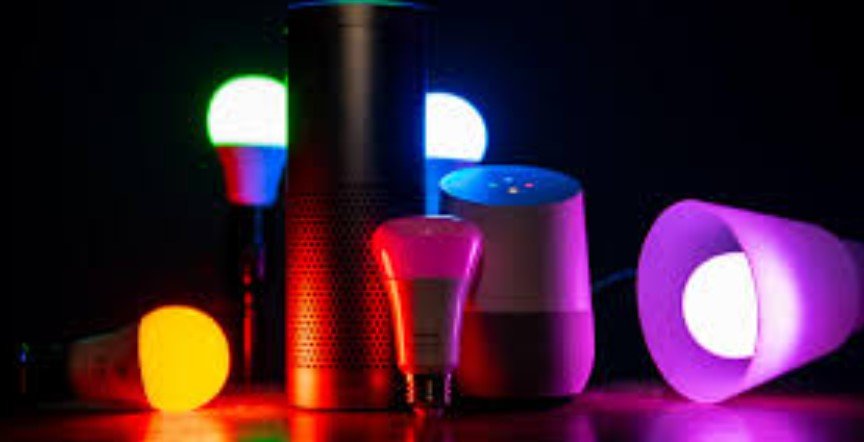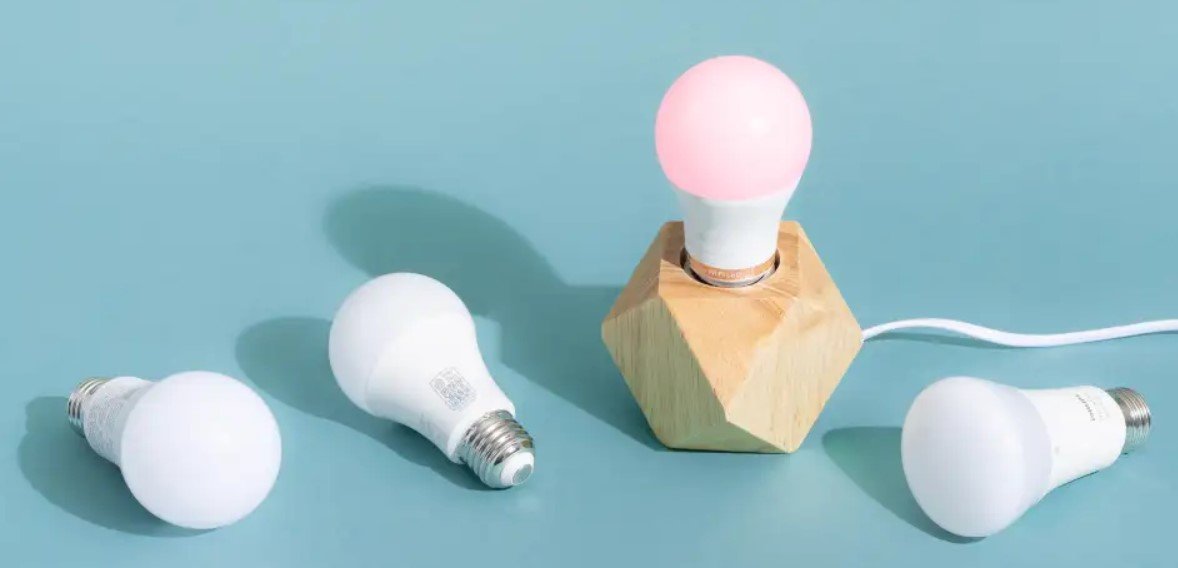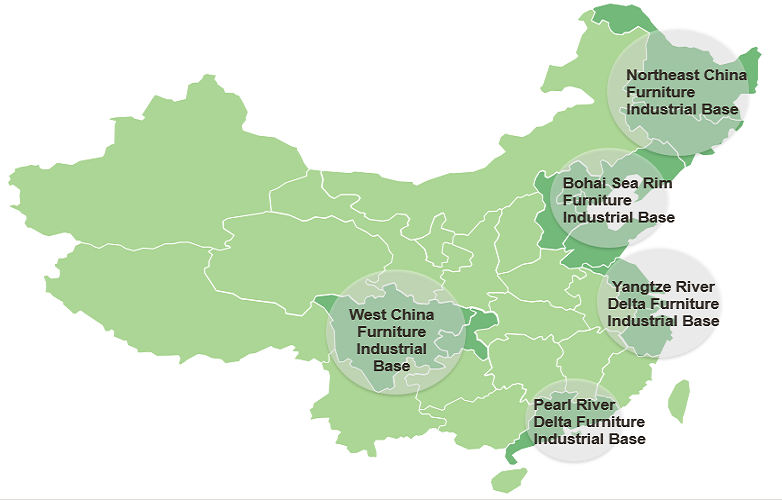Partner with China’s Best Smart Light Bulb Suppliers
1. Introduction
2. What are Smart Light Bulbs?
3. Features to Consider
4. Why import Smart Light Bulb from China?
5. How to find the right smart light bulb supplier?
6. Where to buy smart light bulb?
7. Negotiating with the manufacturer
8. Quality Control
9. Shipping and Logistics
10. Customs and Taxes
11. Conclusion
1. Introduction

Smart light bulbs are the future. They also have built-in apps that allow you to turn them on and off remotely, change their color temperature, and dim them via voice commands. The only trouble is that they are expensive and hard to find in stores.
That is why we created this guide to help our readers get started importing smart light bulbs from China.
We will tell you everything you need to know about importing smart light bulbs from China: how much they cost and where you can buy them; what brands are available; how to choose which one is right for your home; and how much processing time it takes for each order.
1.1. The rise of smart light bulbs and their increasing popularity
Smart lighting is a growing trend in the home. Not only does it save energy, but it also makes for a more functional and pleasant environment. With smart lights, you can control the brightness and color temperature of the light and dim it when you do not need it.
The most significant advantage of smart lights is that they help control your energy consumption by turning off when they are not needed and even changing colors to match the time of day or mood you are in.
1.2. Importance of importing from China
There are many advantages to importing smart light bulbs from China. The first advantage is that you can save money on electricity bills because these smart lights consume less energy than traditional lighting systems. They also come with a long lifespan, so you will not have to replace them as often as you would with traditional bulbs.
Another advantage of importing smart lights from China is that they are easy to install. That means you do not need technical skills or expertise to install them in your home or office.
2. What are Smart Light Bulbs?
Smart bulbs are a relatively new addition to the world of home tech. They are connected to Wi-Fi devices controlled by your smartphone or computer.
The best part about smart bulbs is that they can be controlled from anywhere in the world via an app or website so that you can turn them on or off from anywhere in your house.
2.1. Definition of smart light bulbs
Smart light bulbs are light bulbs that can be controlled remotely through a smartphone app or voice command via a smart speaker or virtual assistant. They typically connect to a home’s Wi-Fi network, allowing users to adjust the light’s brightness, color, and temperature and set schedules or timers. Some smart bulbs can also be integrated with other smart home devices, such as motion sensors or door locks, to create a more comprehensive automation system.
2.2. Types of smart light bulbs
Several types of smart light bulbs are available on the market, each with unique features and capabilities. Here are some of the most common types of smart light bulbs:
• Wi-Fi smart light bulbs
These bulbs connect directly to your home’s Wi-Fi network, allowing you to control them with your smartphone or voice assistants like Amazon Alexa or Google Assistant.
• Smart led light bulbs
These are traditional light bulbs that have been updated with a chip that allows them to be controlled via an app on your smartphone or tablet.
• Smart outdoor light bulbs
These bulbs are designed to be used outside and can withstand the elements.
• Smart flood light bulbs
Smart flood light bulbs are a type of smart light bulb that is designed to illuminate large areas, such as outdoor spaces or large indoor rooms.
• Smart color-changing light bulbs
Smart color-changing light bulbs allow you to change the color of your lighting to suit your mood or the occasion. They offer various colors, from warm white to cool white, and even different colors.
• Smart camera light bulbs
These bulbs are a combination of smart light bulbs and security cameras. These devices are designed to provide both lighting and security in one convenient package.
• Smart candlelight bulbs
These are a type of smart light bulb designed to mimic a candle’s flickering flame. They create a warm and cozy atmosphere in your home, similar to a real candle.
• Bluetooth-enabled smart bulbs
These bulbs connect directly to your smartphone via Bluetooth, allowing you to control them without needing a hub or bridge.
• Thread-enabled smart bulbs
Thread-enabled smart bulbs are a smart bulb that uses the Thread wireless protocol to communicate with other Thread-enabled devices in your home. Thread is a low-power, wireless mesh networking protocol designed for smart homes, and it provides a secure and reliable way for devices to communicate with each other.
• Smart bulbs with built-in speakers
Smart bulbs with built-in speakers are an innovative product that combines lighting and audio in a single device. These bulbs can be controlled with a smartphone app or voice assistant and provide a convenient way to play music or listen to audiobooks in any room of your home.
• Smart bulbs with motion sensors
Some smart bulbs come with built-in motion sensors, which can detect movement in a room and turn the lights on and off accordingly. These smart bulbs are a convenient and energy-efficient way to light up a room when needed without having to flip a switch physically.
2.3. Comparison to traditional light bulbs
Smart bulbs are a great alternative to traditional light bulbs. They are more efficient, have no mercury, and cost less than traditional light bulbs. However, they last less time than the older generation of smart bulbs.
The main difference between these two types of lighting is that the traditional lights use incandescent bulbs, while the smart lights use LED (light-emitting diode) bulbs. LED bulbs have a longer lifespan than incandescent bulbs because they do not contain mercury, which can harm humans.
2.4. Benefits of Smart Light Bulbs
Smart light bulbs are the latest smart tech helping transform our homes. They have many benefits, including:
• Energy efficiency and cost savings
The light bulb is one of the most energy-consuming household appliances. With a smart bulb, you can save up to 75% on your electricity bill. If you struggle to cut costs, why not try a smart bulb? These bulbs automatically turn off when they detect darkness or low battery power and can be controlled using an app on your phone. You’ll also benefit from the money you save in terms of fuel costs and reduced costs for maintenance.
• Convenience and customization options
These bulbs are even designed to work with your existing sockets, so you do not need extra wires or cables to connect them to other devices around your home.
• Improved home security and safety
We want to feel safe as we become more connected. Smart lighting is one of the most effective ways to do this, as it can be used to create a security system for your home. You can set up zones where a specific type of bulb should be on at certain times of day, and you will know when someone has entered or left your property via an app installed on your phone.
3. Features to Consider
The smart light bulb is one of the latest innovations in lighting technology. It is a lamp with a built-in sensor, which can be controlled remotely via an app and programmed to switch on or off at set times.
The smart light bulb is an excellent addition to your home, especially if you are looking for something that will help you save energy and money while making life easier.
However, before you start shopping for a smart light bulb, there are some things you should consider first.
3.1. Brightness and color temperature
Brightness and color temperature are two important characteristics of smart light bulbs that you should consider when selecting the right bulbs for your home.
Brightness refers to the light a bulb produces, typically measured in lumens. The brightness level you choose will depend on the size of the room and the intended use of the lighting. For example, you may want brighter lights in your kitchen or workspace but prefer dimmer lights in your bedroom or living room. Smart bulbs typically offer a range of brightness options that can be adjusted via an app or voice command.
Color temperature refers to the hue of the light emitted by a bulb, measured on the Kelvin (K) scale. Lower Kelvin values (below 3000K) produce warm, yellowish light that creates a cozy and relaxing atmosphere. Higher Kelvin values (above 5000K) produce cooler, bluish light that simulates daylight and can enhance productivity. Some smart bulbs offer a range of color temperature options that can be adjusted to match your mood or activity.
3.2. Compatibility with voice assistants
Compatibility with voice assistants is a vital feature to consider when selecting smart light bulbs for your home. Voice assistants allow you to control your smart bulbs with voice commands, making it easy to turn lights on and off, adjust brightness and color temperature, and set schedules without using an app or physical switch.
3.3. App interface and usability
App interface and usability are other features to consider when selecting smart light bulbs for your home. The accompanying app should be easy to use and offer a range of features to make controlling your lights convenient and intuitive.
The app interface should be user-friendly, with clearly labeled buttons and intuitive navigation. It should also offer various customization options, such as setting schedules, creating scenes, and adjusting brightness and color temperature. Some apps also offer features such as geofencing, which automatically turns lights on or off when you leave or enter a room, and voice command integration with popular assistants like Amazon Alexa and Google Assistant.
3.4. Durability and lifespan
The durability and lifespan of your smart light bulb are crucial factors to consider. If you want to spend less on electricity bills, use bulbs that can last longer. The bulb’s lifespan will also depend on the quality of materials used in its construction. So, before making any purchase, make sure it is made from quality materials that can last long without breaking down or needing frequent repairs.
3.5. Price and value for money
The most important feature to look out for is the price and value for money. When you plan on importing smart light bulbs, knowing how much they will cost and how much they will save you is essential. The price of a smart light bulb is determined by its features, size, and type. Many online stores sell smart bulbs, but not all have affordable prices.
4. Why import Smart Light Bulb from China?

China is the leading manufacturer of LED light bulbs. The players in this field aspire to produce more LED lights in the future to meet the demand for these products. To achieve this goal, they have invested a lot in research and development, increasing the efficiency of LED lights.
The other reason you should import from China is their fast production cycle. You can expect your order within one week if you choose this option.
4.1. Advantages of importing from China
There are several potential advantages of importing smart light bulbs from China, including:
• Cost-effective
China is known for its cost-effective manufacturing processes, making importing smart light bulbs from China a cost-effective option for businesses.
• Wide range of products
China has many smart light bulb manufacturers, providing buyers with various features, designs, and price ranges.
• Quality
Chinese manufacturers have made great strides in product quality and reliability. That means that buyers can find high-quality smart light bulbs at competitive prices.
• Fast production and delivery
With a well-established supply chain, many Chinese manufacturers can produce and deliver products quickly, which can be an advantage for buyers who need to bring products to market quickly.
4.2. The country’s dominance in the smart light bulb market
China is the world’s largest light bulb market, and its dominance in the smart light bulb market is expected to continue for years. China, the world’s largest producer of light bulbs and a top producer of solar cells has been aggressively producing smart lighting products for several years, including smart bulbs and smart lights.
China’s dominance in this field is due to a combination of factors:
• The country has an enormous population and produces many electronics, including LED lights.
• It has large supply chains and manufacturing resources.
• It has aggressive government policies that promote research and development in new technologies.
• The government provides subsidies to consumers so they can afford products with higher prices.
4.3. The process of importing from China
Importing smart light bulbs from China can be a complex process, but here are some general steps to consider:
• Supplier selection
Identified potential suppliers and vet them carefully to ensure they are reputable and reliable. Look for suppliers with experience exporting products to your country and good references from other customers.
• Negotiation
Negotiate the price, delivery terms, and other details with your selected supplier. Be clear about your expectations and requirements, and ensure that all terms are clearly stated in the contract.
• Shipping
Arrange for shipping of the smart light bulbs from China to your country. That can involve working with a freight forwarder or shipping company to handle the logistics.
• Customs clearance
Once the smart light bulbs arrive in your country, you will need to arrange for customs clearance. That involves paying import duties and taxes and ensuring all required documentation is in order.
5. How to find the right smart light bulb supplier?
Finding the right smart light bulb supplier can be a challenging task. There are so many different types of smart bulbs available that it can take time to choose the one that best suits your needs. Before looking for a smart bulb supplier, you must know what you want.
You should be able to answer these questions:
What are your needs?
Do you want to use your smart lights for other purposes besides lighting? For example, do you want to use them as security lights or as part of home automation systems?
What are your budget constraints?
The price range and quality of the products available from suppliers will vary significantly depending on the type of product being purchased. So it is essential to determine your budget constraints before purchasing.
Is there an existing ecosystem that works with this kind of system?
It would be too expensive and time-consuming to develop an ecosystem around a new technology like this one – so look at existing ecosystems in operation before embarking on creating one yourself.
5.1. Tips on how to find the right supplier for your needs
When it comes to finding the right smart light bulb supplier for your needs, there are a few key factors to consider. Here are some tips that can help you make an informed decision:
• Research the market
Before looking for a supplier, research the types of smart light bulbs available, their features, and their pricing. That will give you an idea of what to expect and help you make an informed decision.
• Determine your requirements
Consider what you need from your smart light bulbs. Do you want them to be compatible with a particular voice assistant, or do you need them to work with a specific smart home platform? Knowing your requirements will help you narrow your search and find a supplier that meets your needs.
• Check supplier reputation
Look for suppliers with a good market reputation. Read online reviews, check their ratings on trusted review sites, and ask for recommendations from people you trust.
5.2. Popular marketplaces for finding smart light bulb suppliers in China
There are many places to find smart light bulb suppliers in China. Here are three popular marketplaces for finding smart light bulb suppliers in China:
Alibaba
Alibaba is the largest online marketplace in the world and is a great place to find smart light bulb suppliers in China.
Made-in-China
Made-in-China is another popular online marketplace where you can find smart light bulb suppliers in China.
DHgate
DHgate is another B2B online marketplace connecting buyers and suppliers. You can find a variety of smart light bulb suppliers on this platform.
5.3. How to conduct due diligence on potential suppliers
Conducting due diligence on potential suppliers involves several key steps. Before performing any due diligence, you must establish your requirements for the smart light bulbs you seek. What are the specific features and functions that you require? What is your target price range? What is your expected order volume?
Research possible suppliers by checking online directories, trade shows, and industry forums. Once you have a list of potential suppliers, verify their credentials. Check their business license and other legal documents, such as their export license.
6. Where to buy smart light bulbs?

There are many online marketplaces where you can buy smart light bulbs from China. Some popular options include:
1. alibaba.com
2. made-in-china.com
3. dhgate.com
4. globalsources.com
5. aliexpress.com
6. chinabrands.com
7. huntersourcing -China sourcing agent.
7. Negotiating with the manufacturer
Before you rush out and buy a smart bulb, you must know what to consider when choosing one. The first thing to consider is the price. As a consumer or business, learn to negotiate with manufacturers for better prices before you buy.
7.1. Strategies for negotiating with the manufacturer
When negotiating with a smart light bulb manufacturer, it is essential to remember that the manufacturer is likely focused on maximizing their profits. However, there are several strategies you can use to negotiate effectively:
Research the market
Before negotiating, research the market for smart light bulbs. That will give you an idea of the average price, features, and quality of the products available. This information will help you set realistic expectations and provide you with leverage in the negotiation.
Prioritize your needs
Determine your most important needs and prioritize them. That will help you focus your negotiation efforts and ensure you get the essential features for your money.
Know your budget
Set a budget and stick to it. Knowing your budget will help you negotiate effectively and spend your money wisely.
Ask for discounts
Be bold and ask for discounts or special offers. Smart light bulb manufacturers may offer discounts for bulk orders or for customers who are willing to commit to a long-term contract.
Negotiate on features
If the price is too high, negotiate on features. You can negotiate a lower price by accepting fewer features or by agreeing to purchase a lower-priced model.
7.2. How to obtain the best price and terms from the manufacturer
The best way to find out the best price and terms from a manufacturer is to negotiate with them. That is a critical step in acquiring the bulbs and will save you time and money in the long run.
First, you need to understand that manufacturers offer different types of smart light bulbs, so there is no single answer on how best to obtain the best price. However, there are a few things that you can do if you want to get the best deal:
Get quotes from several manufacturers at once. The more quotes you receive from other manufacturers, the better your chances are of getting the best price possible for your purchase decision.
7.3. Common mistakes to avoid during negotiations
Knowing what you are getting into is essential when negotiating with a manufacturer. Here are some common mistakes that people make when negotiating with a manufacturer:
• Focusing too much on the price
While price is important, other factors must be considered. Ensure to focus on price at the expense of other important factors, such as quality, delivery time, and warranty terms.
• Not doing your research
It is essential to research the manufacturer and their products thoroughly before entering into negotiations. That will help you understand their pricing structure, production capabilities, and any potential pitfalls you should know.
• Being too rigid
Negotiations should be a give-and-take process. Don’t be too rigid in your demands or unwilling to compromise. Aim for a win-win situation where both parties feel satisfied with the outcome.
• Ignoring non-price factors
Pay attention to non-price factors, such as payment terms, shipping arrangements, and customer support. These factors can significantly impact your overall satisfaction with the manufacturer.
8. Quality Control

Every business is responsible for ensuring that every product is manufactured with utmost care and attention to detail.
Quality control is essential to import companies. They want to ensure that the product they are importing is not damaged and is in proper condition.
8.1. Importance of quality control in the importing process
Quality control is crucial because it ensures that imported products meet the necessary quality standards and comply with relevant regulations. Without adequate quality control measures, importers may end up with substandard or non-compliant products, which could have serious consequences such as customer dissatisfaction, product recalls, legal liabilities, and damage to brand reputation.
Here are some specific reasons why quality control is vital in the importing process:
• Product Safety
Quality control measures help to identify any potential safety hazards associated with imported products. That ensures that the products are safe for use or consumption by end-users.
• Compliance with regulations
Different countries have regulations on product quality and safety. Quality control measures ensure that the imported products comply with the relevant regulations in the importing country.
• Consistency of product quality
Quality control measures help ensure that the imported products consistently meet the required quality standards. That helps maintain the importer’s reputation and ensures that customers receive consistent quality products.
• Reduced costs
Effective quality control measures can help to identify potential issues with imported products before they are shipped, reducing the need for costly returns and recalls.
8.2. How to ensure product quality and compliance with regulations
The following two points are essential to ensure product quality and compliance with regulations when importing:
Quality assurance system
The quality assurance system for imported smart light bulbs should include an effective system for detecting whether the products comply with laws and regulations and meet product specifications. This system should also have a safety mechanism that ensures the products are not defective or damaged during transit, storage, or installation in foreign countries. In addition, the system should ensure that all relevant information is accurately recorded during production and inspection to avoid any product defects or safety hazards after arrival in the destination country.
Compliance with national standards
It is necessary to comply with federal standards in all aspects of production, including product design, materials and components selection, production equipment manufacture, and testing methods and procedures used during production.
8.3. Steps to take if product defects are found
Product defects can arise from many different factors. These include poor quality control at the factory where the product was made, incorrect labeling, or even a faulty shipment. If you find that your smart light bulb has a defect, you should contact the manufacturer or distributor immediately so that they can address the issue.
9. Shipping and Logistics

The first question an importer needs to ask is whether or not the product can be shipped by a common carrier, which means that the shipment will go through the US Postal Service.
The second question is whether or not the manufacturer has chosen to use a freight forwarder for shipping their products. If so, you will need to contact them and find out their steps to ensure your product arrives safely at its destination...
9.1. Overview of the shipping and logistics process
The first step is to place an order with a supplier, specifying the quantity, price, and delivery terms. The supplier will start production and conduct quality control checks to ensure the products meet your specifications.
The supplier will then package and label the smart light bulbs according to your requirements. That will include putting the product in a suitable box and marking it with the necessary information, such as product code, quantity, and country of origin.
The supplier will arrange to ship the smart light bulbs to your location. Depending on your requirements and budget, they choose a suitable shipping method, such as air or sea freight.
Once the shipment arrives in your country, it will go through customs clearance. That involves submitting the necessary paperwork, such as the commercial invoice and bill of lading, and paying applicable customs duties and taxes.
After customs clearance, the products will be delivered to your chosen location. That can be to your business address or a warehouse where you’ll store them before selling or distributing them to your customers.
9.2. Different shipping options available
Several shipping options are available when importing a smart light bulb from China, depending on the delivery’s urgency and the shipping method’s cost-effectiveness. Shipping options importers can use are:
• Express shipping
This option is the fastest and most expensive. The shipment usually takes 3-5 business days to arrive at the destination country. DHL, FedEx, and UPS are popular express shipping companies.
• Air freight
Shipping with air freight usually takes 5-10 business days for the shipment to arrive. Air freight is more expensive than sea freight but less expensive than express shipping.
• Sea freight
This option is the most cost effective shipping method available. However, it is also the slowest, and the shipment may take 30-45 days to arrive. Sea freight is suitable for large shipments that are not time-sensitive.
• E-packet
This shipping method is a popular option for small packages. It is an affordable option that takes about 7-30 days to arrive at the destination country.
• Rail freight
This shipping method is becoming increasingly popular. The shipment takes 15-20 days to arrive and is a cost-effective option for medium to large shipments.
9.3. Tips for avoiding delays and ensuring timely delivery
If you’re importing smart light bulbs, knowing the risks involved regarding delays and ensuring timely delivery is essential.
To avoid delays and ensure timely delivery when importing smart light bulbs, ensure your shipment is on time. Shipping your order immediately after purchase is the best way to avoid delays. If you order something on the weekend, expect it to arrive in time for the week ahead.
Keep track of your shipment’s progress during transit from manufacturer to store. That will help ensure that everything arrives at your door on time and that there aren’t any delays along the way
10. Customs and Taxes

The importation of goods from China is subject to a variety of customs and internal taxes. In addition to the standard tariffs imposed by China, each country imposes its tariffs and taxes on imported goods.
10.1. Overview of customs and taxes involved in importing from China
The customs procedures for importing from China are straightforward but can be time-consuming. You must declare the value of your goods when you import them, and you may have to pay import duties and taxes. These rates will depend on the type of product you are importing.
10.2. How to handle customs clearance and documentation
The Chinese government provides several services for exporters and importers (such as duty-free trade zones). These services include customs clearance, anti-dumping actions, anti-subsidy actions, and technical assistance programs.
In addition to these government services, private service providers offer various kinds of assistance related to customs clearance. For example, huntersourcing is a China sourcing agent that provides warehousing and logistics.
10.3. Common mistakes to avoid when dealing with customs and taxes
Dealing with customs and taxes is always challenging for people new to importing from China. The process can be smooth if you avoid the following mistakes:
• Incorrectly classifying goods
• Undervaluing goods
• Failing to keep accurate records
• Not working with a reliable freight forwarder or customs broker.
11. Conclusion
Knowing the different kinds of lights is vital when looking for a specific type of light bulb. Many manufacturers sell these bulbs, and it is crucial to find one that can provide you with the best prices. When choosing a supplier, you will want to ensure that they have been able to provide good customer service and offer high-quality products. It is also crucial that the company has a good reputation and has been able to provide reliable service over time.
Related Post
Furniture is a must for an office or a home. It is available at varying price points as Read more
Wood is extensively used in making furniture around the world. Wood can be molded in any shape or Read more
In the current market condition, a major portion of the world's consumption depends on China. The product range Read more
Contact Us Get Free Quote!
* Please kindly fill out the form for inquiry
* we will reply to your inquiry within 24hours




